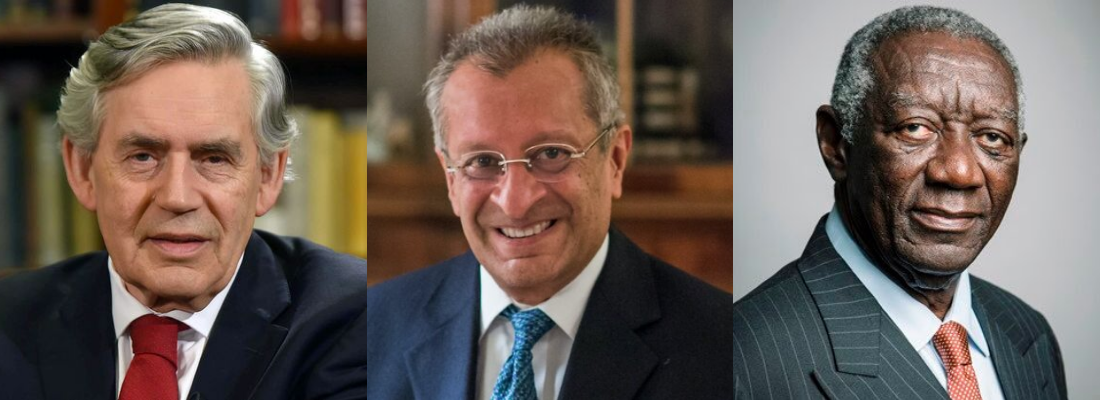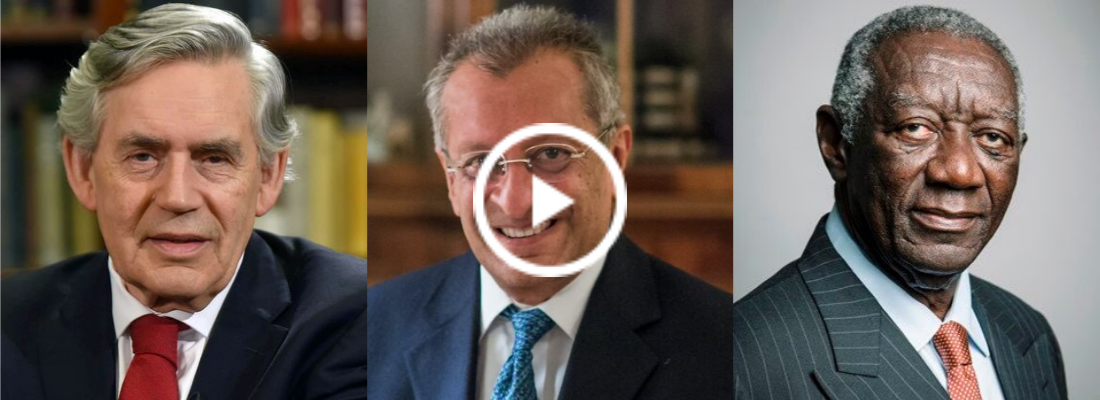Mohamed Amersi in conversation with Rt Hon Gordon Brown and HE John Kufuor, former President of Ghana
On July 22nd, on behalf of the Commonwealth Institute, Mohamed Amersi hosted a conversation with Rt Hon Gordon Brown, UN Special Envoy for Global Education and former Prime Minister of the UK, and HE John Kufuor, former President of Ghana. The conversation was centred around a global right to education.
Through the exchange of learnings between Amersi, Brown, and Kufuor, the conversation touched upon three critical insights:
1. Government should allocate resources to prioritise education
Rt Hon Gordon Brown reflected on his trip to Africa in 2007 where he engaged with Nelson Mandela.
His visits to Africa surfaced a critical insight that education is neglected by Governments around the world. The recognition that Government fails to allocate sufficient resources to the funding and reform of education, alongside the inspiration he drew from Nelson Mandela, whose second mission, after leading the movement to end South African apartheid, was ‘to give every child access to education’ have shaped Brown’s call to action. Through his foundation, Gordon Brown is committed to developing equitable and inclusive education for every child.
2. We need to focus on our common values system
HE John Kufuor outlined the urgent need to achieve a global right to education for all children. In addition to a rebalanced allocation of resources towards education, Kufuor emphasised the urgency for humanity to focus on common values, rather than differences. By focusing on common values, there is an exponential opportunity to pull together as a common humanity to work towards shared goals, with education as a priority. This learning was reinforced by Rt Hon Gordon Brown and Mohamed Amersi who asserted the need for a core curriculum to include teachings for children to respect each others’ differences across cultural traditions and faiths.
3. Political leadership must collectively uphold the sanctity of mankind
To achieve a global education for all, political leaders from around the world must come together to recognise this universal goal. To unlock this opportunity, there is a pressing need for political will from around the world to join together to achieve this common purpose through collective action. In particular, the ‘education-rich’ countries must support the ‘education-poor’ countries. Without this, the widening digital divide, which has been intensified by Covid-19, will continue to drive a wedge between the children and families with access to digital devices vs. those who don’t.
Upon closing, Mohamed reiterated the multiplier effect of an educated society which will equip us with the ability to address the breadth of global challenges we face including climate change, health care, modern day slavery, inclusive econmoies, amongst many others.
For access to this enriching conversation in full, please contact us directly.


